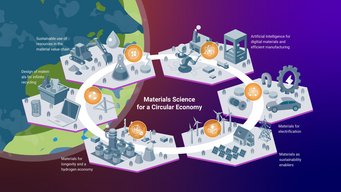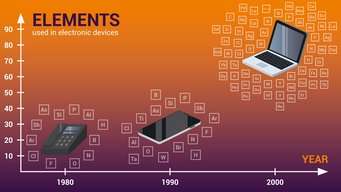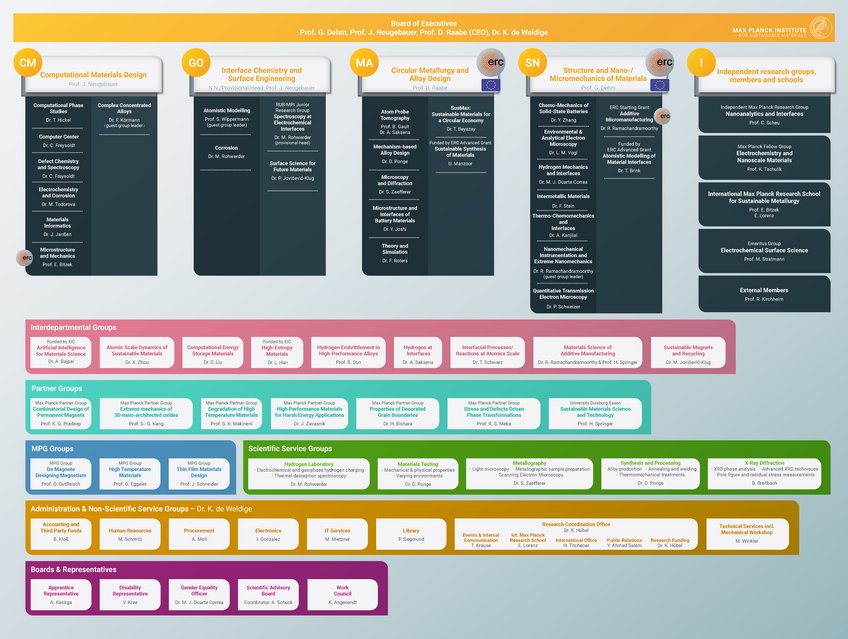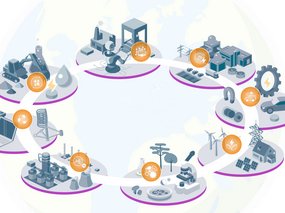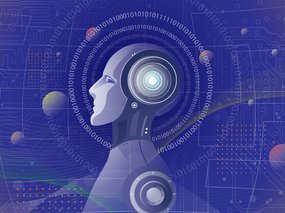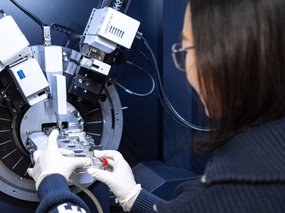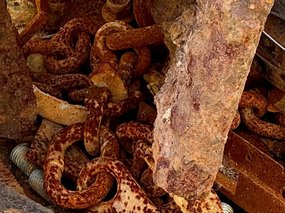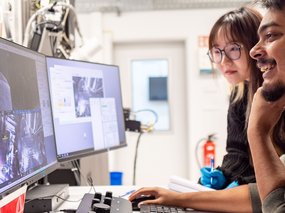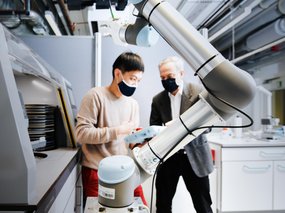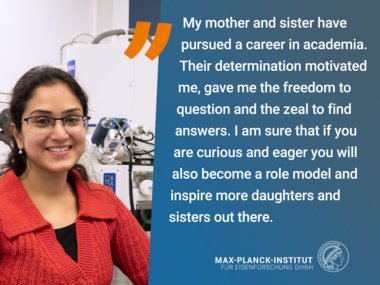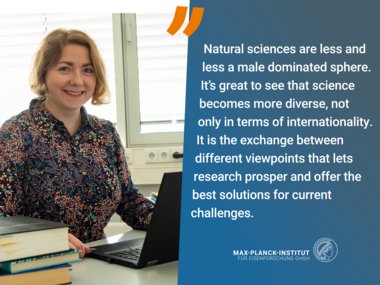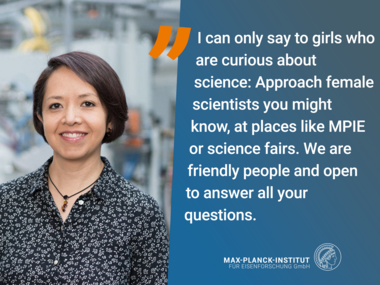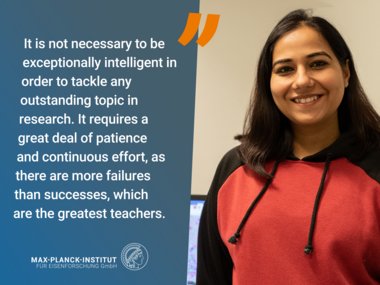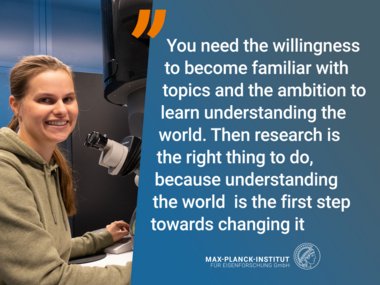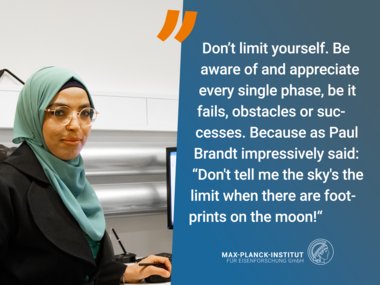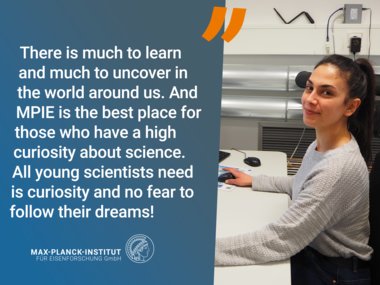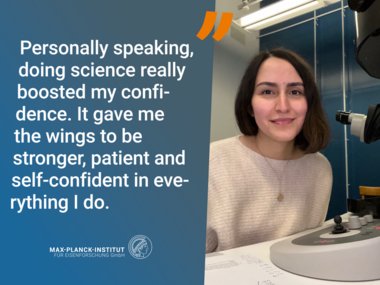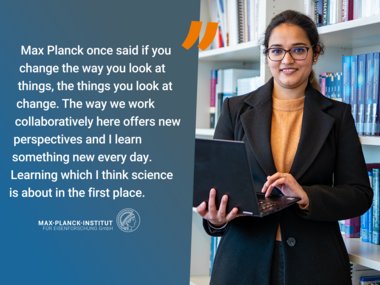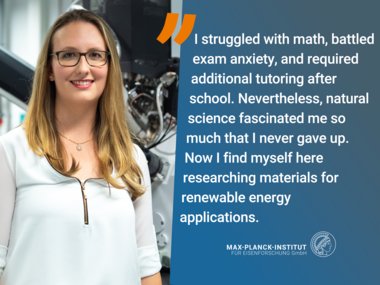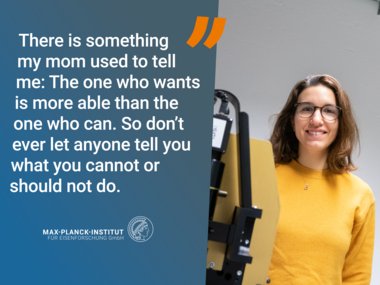
About us
Pioneering materials, shaping a sustainable tomorrow
The Max Planck Institute for Sustainable Materials (MPI-SusMat) pioneers research at the intersection of materials science, sustainability, and advanced technology. We analyse materials from the atomic and electronic scale up to macroscopic properties, enabling the design of sustainable, high-performance materials for extreme environments. By combining experimental expertise and advanced microscopy with computational modelling and artificial intelligence, we accelerate the discovery of materials that meet both industrial and environmental challenges.
Our Research Focus
At the Max Planck Institute for Sustainable Materials research is organised into four interdisciplinary departments, alongside an independent Max Planck research group and a Max Planck fellow group. Each team specialises in certain core areas and methods while collaborating to develop sustainable, high-performance materials for society’s most pressing challenges.
Computational Materials Design
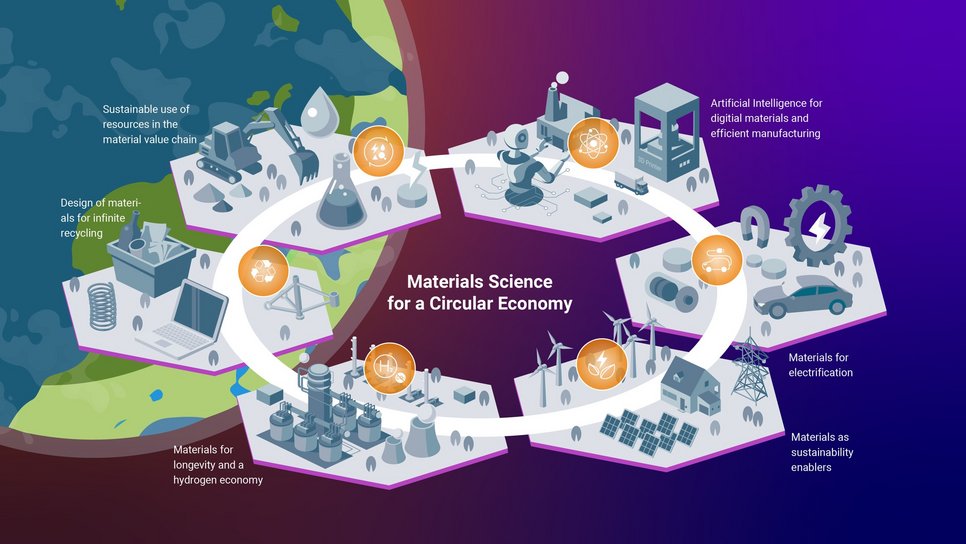
The Department of Computational Materials Design develops and applies multi-scale computational methods to connect quantum mechanical principles with real-world material discovery. Using high-performance computing, AI, and high-throughput workflows, the department identifies novel materials for applications in structural, functional, and energy-efficient technologies. Key research areas include CO2-free material synthesis, recycling-friendly alloy design, and strategies to enhance material lifetimes. By combining quantum simulations with thermodynamics, continuum mechanics, and machine learning, CM predicts material properties with high accuracy. Central to this effort is pyiron, an in-house platform that integrates simulation tools and accelerates method development, enabling breakthroughs such as advanced interatomic potentials, defect phase diagrams, and fully ab initio approaches for electrochemical systems.
Interface Chemistry and Surface Engineering
The Interface Chemistry and Surface Engineering department focuses on corrosion, electrochemical energy conversion, and the development of durable, efficient structural and functional materials. Experimental and theoretical methods are combined, from high-throughput surface studies to atomically precise ab initio modelling. Research addresses critical challenges in fuel cells, batteries, pickling, and hydrogen in steel, including the oxygen reduction and evolution reactions. Advanced techniques such as Scanning Kelvin Probe, Atomic Force Microscopy, and in situ spectroscopy allow the team to probe electrified interfaces and detect hydrogen directly in metals and coatings. The department actively contributes to collaborative projects like the RESOLV Cluster of Excellence, linking fundamental interface science to industrial applications.
Circular Metallurgy and Alloy Design
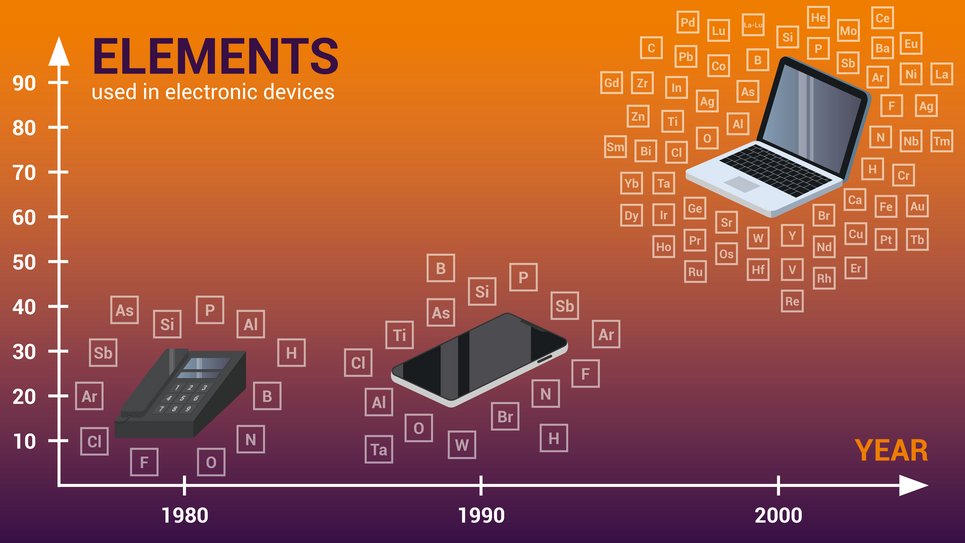
The Circular Metallurgy and Alloy Design department investigates the relationships between synthesis, microstructure, and properties of complex metallic alloys. Focus areas include aluminium, titanium, steels, high-entropy alloys, magnesium and magnetic materials. Using multiscale characterisation, machine learning, and computational modelling, the department develops alloys with tailored mechanical, functional, and electrochemical properties. Research emphasizes sustainable production, recycling-compatible alloy design, and tolerance to impurities and hydrogen. Core methods include atom probe tomography, electron backscatter diffraction, crystal plasticity modelling, and fully integrated computational–experimental workflows. The department also designs lab-scale reactors for hydrogen-based reduction, electrolysis, and additive manufacturing studies, supporting a transition to a circular and low-carbon materials economy.
Structure and Nano-/Micromechanics of Materials
The Structure and Nano-/Micromechanics department explores deformation, fatigue, and fracture mechanisms in complex and miniaturized materials. By combining in situ nano-/micromechanical testing with advanced microstructure characterisation, such as transmission electron microscopy, scanning electron microscopy, and X-ray diffraction, the department quantifies local and global material behaviour. Insights guide the design of nanostructured and high-temperature materials with enhanced strength, ductility, and durability. Research covers confined geometries, multiphase microstructures, and functional stacks in modern micro- and nanotechnologies, bridging fundamental understanding with practical applications in energy, mobility, and industrial materials.
Independent Max Planck Research Group: Nanoanalytics and Interfaces
The Nanoanalytics and Interfaces group specialises in the atomic-scale characterisation of materials for renewable energy and the hydrogen economy. Using transmission electron microscopy, electron energy loss spectroscopy and correlative microscopy, the group investigates crystal defects, interfaces, and nanostructures to establish structure–property relationships. Research supports the design of catalysts, fuel cells, thermoelectric devices, and thin films, focusing on performance, stability, and degradation mechanisms. In situ and operando studies allow the team to monitor dynamic processes, linking synthesis and processing conditions to functional improvements in energy materials.
Max Planck Fellow Group: Electrochemistry and Nanoscale Materials
The Max Planck Fellow Group investigates the design and optimisation of electrocatalysts for renewable energy technologies and industrially relevant materials. By systematically varying composition, grain size, surface facets, and porosity, the group identifies structure–activity relationships at both single nanoparticle and ensemble scales. Innovative synthesis, magnetic field-assisted deposition, dealloying, and operando spectroelectrochemical techniques are combined with computational modelling to understand catalyst restructuring, surface reactions, and ageing. This work informs rational design strategies for high-performance, long-lasting catalysts, contributing to sustainable energy conversion and industrial material synthesis.
Across all departments, our work addresses sustainability, energy efficiency, and advanced materials for high-tech applications, from rare-earth-free magnets for electric vehicles to corrosion-resistant alloys for long-lasting infrastructure to biocompatible implants for bone replacement.
Collaborative and Interdisciplinary Approach
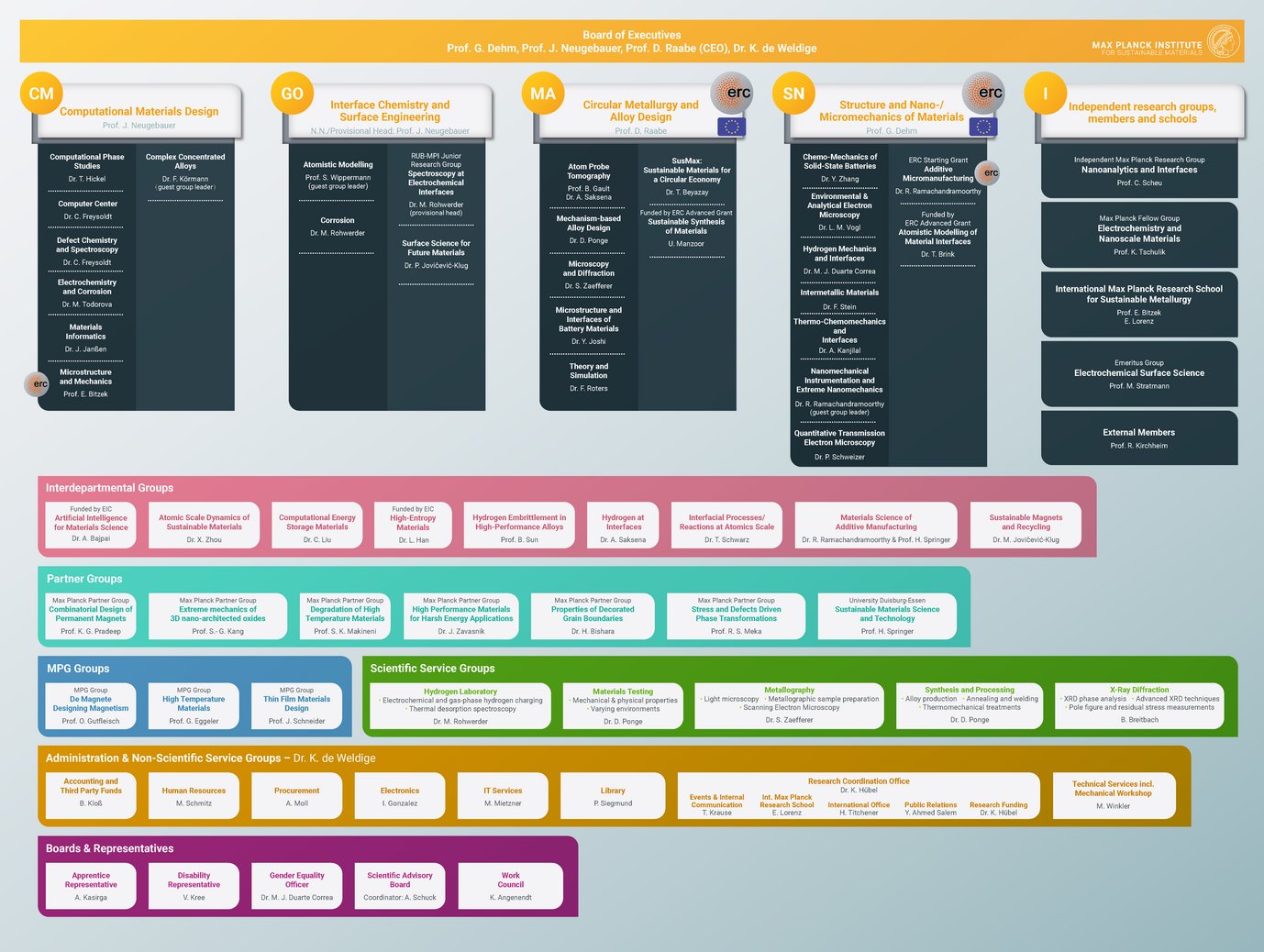
Organisational chart
MPI-SusMat thrives on collaboration, both within its departments, with interdepartmental research groups and with global partners. Cross-disciplinary initiatives optimise the use of experimental equipment, computational resources, and scientific expertise. Departmental and interdepartmental research groups foster innovation while mentoring the next generation of scientists, including master’s, doctoral, and postdoctoral researchers.
Methodological Innovation
We develop novel tools and advance microscopy for materials synthesis, characterisation, and processing. Combining AI, machine learning, and multi-scale simulations, we can predict the properties of new materials before they are physically produced. This approach accelerates discovery of multifunctional materials, optimising performance, durability, and sustainability.
Governance and Evaluation
To ensure the highest standards in research and strategic planning, MPI-SusMat is regularly evaluated by an independent Scientific Advisory Board. This international panel of experts reviews the institute’s scientific achievements, infrastructure, and future plans every three years. Their feedback helps guide our priorities, fosters innovation, and ensures that our research remains cutting-edge and relevant to society.
Supporting Excellence
Our technical and scientific service teams provide essential infrastructure: mechanical and electronics workshops, chemical analysis, hydrogen laboratories, metallography, materials testing, and computational support. MPI-SusMat also hosts the international doctoral programme IMPRS-SusMet, along with administrative, funding, and science communication support, ensuring an integrated and effective research environment.
Our Values: Diversity, Respect, and Sustainability
At MPI-SusMat, our mission goes beyond science. We strive to create a community built on trust, respect, and inclusion, where everyone can thrive regardless of background, identity, or perspective. Diversity fuels creativity and strengthens collaboration, helping us tackle complex challenges in materials research.
We are equally committed to sustainability in everyday life. From campus operations to collaborative projects, we seek to minimise environmental impact while advancing solutions for a greener future. Initiatives like Team Green encourage sustainable practices across the institute, reflecting the same care and responsibility that guide our research. By fostering an inclusive, respectful, and sustainable environment, we aim to empower people and science alike.
Check out our open positions to join our team!
